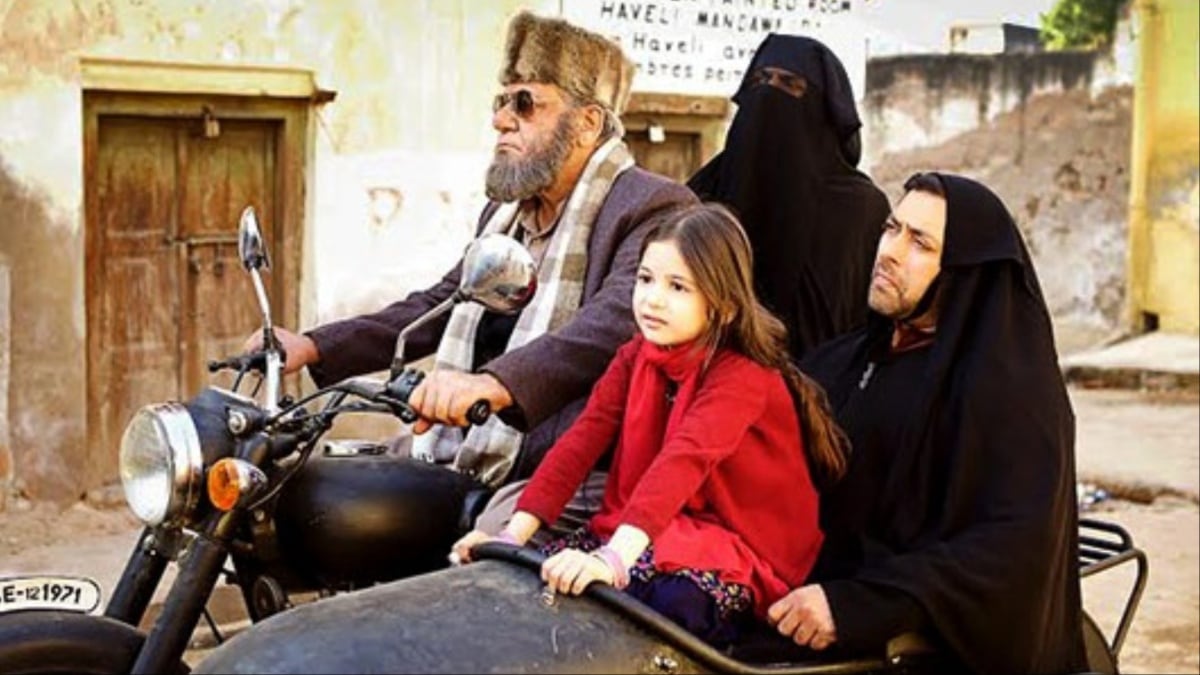

Kabir Khan, the director of the acclaimed film Bajrangi Bhaijaan, recently revealed that he had to fight with the Central Board of Film Certification (CBFC) to retain the "Jai Shri Ram" dialogue in the movie. The CBFC had initially wanted the dialogue removed, expressing concerns that it might offend Muslim audiences.
During an event with the Indian Express' Expresso, Kabir Khan recounted the incident, explaining that the scene in question featured the late actor Om Puri, who played a Pakistani maulana, uttering "Jai Shri Ram" to Salman Khan's character, Bajrangi, while bidding him farewell in Pakistan. Bajrangi hesitates to say "Khuda Hafiz", leading Om Puri's character to ask, "Aap logo mein kya kehte hain? Jai Shri Ram, na?". Without hesitation, the character says, "Jai Shri Ram".
Kabir Khan shared that the CBFC asked him to cut the scene, stating that "Muslims won't like it". The director, himself a Muslim, stood his ground and questioned the board's reasoning. He argued that he had grown up in Delhi where "Jai Shri Ram" was not a political slogan, but a common greeting. He emphasized that it was used by everyone and that in Old Delhi, it was akin to saying "hello" and "goodbye".
Khan fought to keep the scene, asserting that he didn't believe it would offend anyone. He stated, "I fought for it. I stuck to it". His conviction stemmed from his own experiences and understanding of the cultural context in which the dialogue was used.
Kabir Khan also recounted a heartwarming experience that validated his decision. He watched the opening day show of Bajrangi Bhaijaan on Eid at Gaiety Galaxy, a single-screen theater in Mumbai. The audience was packed with "blue-collar Muslim workers" from Bandra, and they erupted in cheers during the very scene the CBFC had wanted removed. This reaction, he said, was a clear sign that the CBFC's concerns were unfounded and that the scene resonated deeply with the audience.
The director's anecdote highlights the complexities of censorship and the importance of understanding cultural nuances. He believes that "gatekeepers," such as the CBFC, sometimes create obstacles by anticipating problems that may never arise. Khan's experience also underscores the potential for film to bridge cultural divides and promote understanding.
Bajrangi Bhaijaan, which revolves around a Hanuman devotee's journey to reunite a mute Pakistani girl with her family, was a massive commercial and critical success. The film was praised for its heartwarming narrative, emotional depth, and message of cross-border humanity and love. Despite initial protests against the film's title by some right-wing groups, it went on to win hearts across the globe.
Looking back on the film's 10th anniversary, Kabir Khan reflected on its enduring impact. He noted that the film continues to accumulate love from audiences worldwide, who appreciate its message of love and hope. Khan and Salman Khan are in discussions for a possible sequel, but are waiting for the right story that matches the emotional and cultural depth of the original.